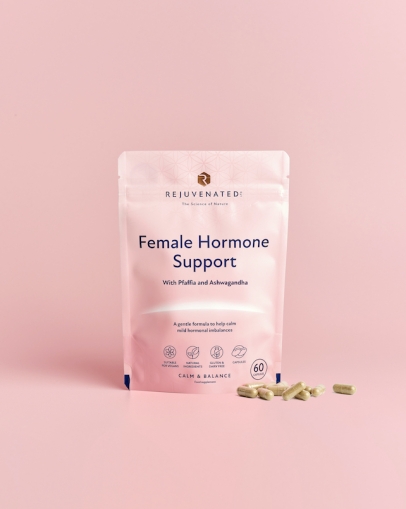The Mediterranean diet: a natural ally for menopause and perimenopause

For women in their 40s and 50s, hormonal shifts during perimenopause and menopause can affect everything from mood and weight to sleep, skin, and bone health. While there’s no single food that can stop the changes, how you eat can make a big difference - and the Mediterranean diet has emerged as one of the most effective, natural approaches to feeling well through this transition.
What Is the Mediterranean diet?
The Mediterranean diet is based on the traditional eating patterns of countries like Greece, Italy, and Spain. It focuses on whole, plant-based foods, healthy fats, lean proteins, and a vibrant array of herbs and spices. It’s not a fad - it’s a way of life rooted in balance, flavour, and nourishment.
Why it’s so supportive during menopause
1. Naturally light in oestrogen-disrupting foods
Unlike the typical Western diet, the Mediterranean approach contains little to no red meat, dairy, or eggs - all of which can impact oestrogen levels when consumed in excess. Instead, it favours plant-based sources of protein like legumes, nuts, seeds, and oily fish, helping to support hormonal balance without overloading the system.
2. Rich in flavonoids and polyphenols
These powerful plant compounds help reduce inflammation, support gut health, and balance mood. The Mediterranean diet is rich in:
- Colourful vegetables and fruit
- Herbs and spices like oregano, basil, and turmeric
- Green tea, berries, and dark chocolate in moderation
These nutrients are also beneficial for brain health, which can be impacted by fluctuating oestrogen levels.
3. Extra virgin olive oil - liquid gold for hormones
A staple of the Mediterranean table, extra virgin olive oil is rich in polyphenols and anti-inflammatory compounds. It supports cardiovascular health, helps reduce joint pain, and provides the healthy fats needed to support hormone production - particularly as oestrogen levels decline.
4. The Mediterranean Diet Supports Weight, Blood Sugar & Heart Health
During perimenopause, insulin sensitivity can decline, making blood sugar harder to control. The Mediterranean diet’s emphasis on fibre, complex carbs, and healthy fats helps stabilise blood sugar, support a healthy weight, and protect against heart disease - something women become more vulnerable to after menopause.
5. Gut Health, Immunity & Mood
A happy gut is crucial for hormone regulation. The high fibre content of this diet (from lentils, beans, vegetables, and whole grains) feeds good bacteria and supports the gut microbiome, which is closely linked to mood and immune health.
What a typical day might look like:
- Breakfast: Greek-style oats with berries, flaxseed, and a drizzle of olive oil – or cold vegetables from the previous night’s dinner.
- Lunch: Lentil salad with rocket, tomatoes, cucumber, and a tahini dressing
- Snack: A handful of almonds and a piece of fruit
- Dinner: Grilled salmon with roasted vegetables, quinoa, and fresh herbs
- Evening: Chamomile tea and a square of dark chocolate
A gentle path through menopause
There’s no perfect diet for every woman, but the Mediterranean approach provides a gentle, nourishing foundation. Rich in antioxidants, flavonoids, and healthy fats, it supports hormonal balance, energy, sleep, brain health, and mood - all essential for feeling your best through the menopause transition.
Discover how Rejuvenated supplements support you through hormonal changes

Female Hormone Support (60 Capsules)
Capsules - 60 servings
Take one per day
To help balance hormones

Collagen Shots (30 Servings)
Collagen Powder - 30 Servings
Mix with water and drink, once per day
For youthful, healthy skin

Re-set (60 Capsules)
Capsules - 60 servings
Supports healthy metabolism and increased energy






